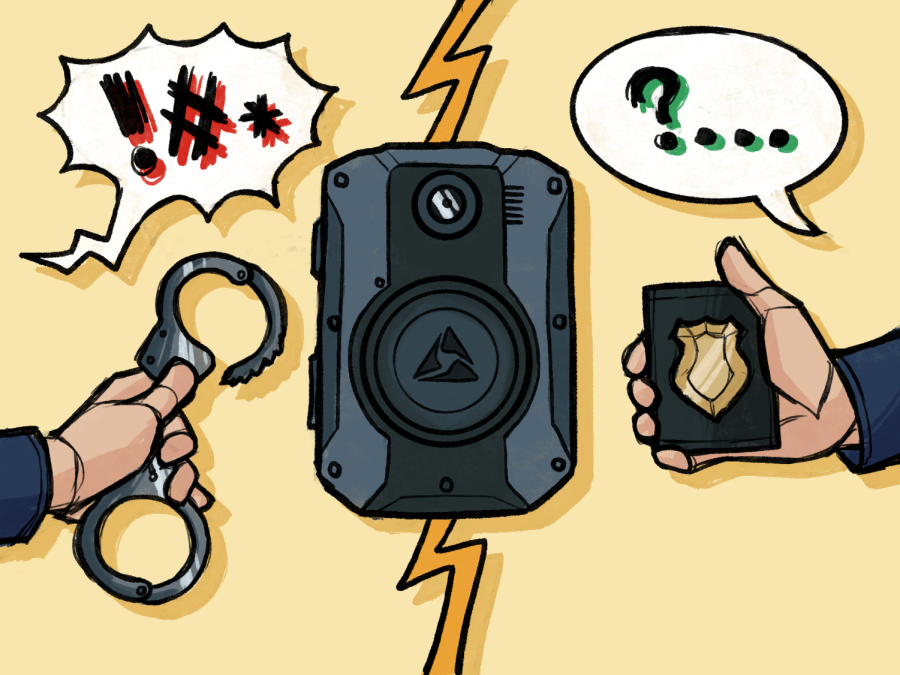OPINION: Body cameras protect against police brutality
In order to protect citizens from police brutality, the implementation of body cameras can help to hold police officers accountable for their actions.
On Tuesday, Jan. 10, Tyre Nichols, 29, died due to complications from being physically assaulted by five police officers. Nichols’s unfortunate passing has marked yet another death in America through the usage of excessive force. More now than ever, citizens require a stronger system of protection from police brutality.
A method of police reform that is fairly well-supported and feasible, is the implementation of body cameras. According to Ashley Southall of the New York Times, in cases where body camera footage is collected, investigators can collect stronger evidence to substantiate claims made against police officers. Body cameras are equipped to the front of police vests and record both audio and video, storing the recordings in an internal database. This level of immediacy allows for images and audio captured directly from body cameras to be used as evidence in legal proceedings.
In cities where police brutality is especially high, body cameras hold officers accountable for police brutality and ensure that they are penalized for their actions. Through body cameras and increasing the transparency of police action, officers have more of an incentive to comply with police department standards, resulting in officers who abide by rules more closely.
Body cameras have also proved effective in exposing racial biases of law enforcement. The New York Times reported that body cameras were found to induce police officers to fill out official paperwork detailing their interactions by nearly 39% in a pilot study. The policy of stop-and-frisk conducted by police officers who question individuals they suspect of wrongdoings, oftentimes occurs in the absence of legal-based reasoning and targets specific minority groups. Following these incidents, officers are expected to fill out official paperwork to properly detail the events of their interaction, which would have the effect of decreasing unconstitutional detainments and interrogations. In the presence of body cameras, officers have a heightened sense of awareness for their actions, leading to better interactions with the public and fewer abuses of the stop-and-frisk policy.
Body cameras thus far have produced mixed results. They have been highly effective in the prosecution of officers involved in police brutality cases. Some, however, claim that they have not had a significant impact on deterring police misconduct. According to a 2021 study from Grid News, there was a small decrease in the use of force used by police officers equipped with body cameras. Additionally, many fear First Amendment violations since the footage from body cameras can be run through facial recognition programs.
Body cameras being weaponized against the public is an alarming thought, but it is important to take these nuances surrounding the issue of body cameras into consideration. They are a fairly noninvasive tactic that can reform police departments with minimal disruption. Also, in the absence of body cameras, many accidents go undocumented, resulting in varied testimonies impacted by false memory of a singular event. Implementing body cameras would result in more accurate reiterations of police-civilian conflicts.
Body cameras have mainly been denied implementation by police departments because of their costs. A singular body camera can cost anywhere from $800 to $1,000. However, there is significant proof that body cameras produce positive results. In a study released by the University of Chicago Crime Lab, complaints about law enforcement dropped by 17%, and the use of force dropped by 10%. Despite the controversy surrounding body cameras, the positive effects of them outweigh the negative effects.
Action must be taken promptly to squander rising police brutality. Body cameras can protect against unjust uses of the police force and can serve as a way to hold officers accountable for their misconduct.


